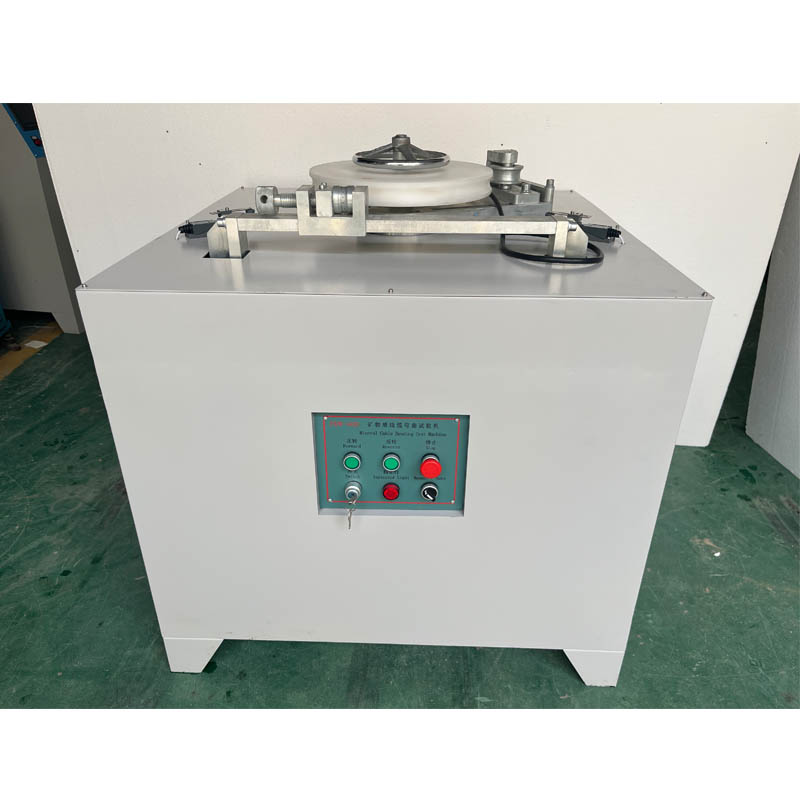metal tensile tester
Understanding Metal Tensile Testers Essential Tools for Material Testing
In the field of materials science and engineering, tensile testing is a crucial procedure used to determine the mechanical properties of metals and other materials. At the heart of this testing process is the metal tensile tester, a sophisticated machine designed to provide accurate and reliable data on a material’s strength, ductility, and elasticity. This article aims to explore the significance of metal tensile testers, their functionality, application, and the factors to consider when choosing one.
What is a Metal Tensile Tester?
A metal tensile tester, also known as a universal testing machine (UTM), is an instrument used to apply controlled tensile loads to a sample until it deforms or breaks. The machine pulls a specimen in opposite directions to determine how much force is required to stretch or pull the material apart. During this procedure, several mechanical properties can be measured, including yield strength, tensile strength, elongation, and reduction in area, among others.
Typically, a metal tensile tester consists of several key components a load frame to support the specimen, grips to hold the material in place, and sensors or gauges to measure the load and displacement. Data collected during the test is recorded and analyzed to provide insights into the material behavior under stress.
The Importance of Tensile Testing
Tensile testing is vital for several reasons
1. Material Selection Engineers and designers must ensure that the materials they choose can withstand the stresses they will encounter in actual applications. By understanding the tensile properties of materials, they can select the most suitable options for specific environments.
2. Quality Control Manufacturers rely on tensile testing to maintain the integrity and reliability of their products. Regular testing ensures that materials meet predefined specifications and standards, thereby minimizing the risk of failures in service.
3. Research and Development In material science, new alloys and composites are developed to enhance performance characteristics. Tensile testing provides essential data that guides the development of these new materials and helps predict their behavior in real-world applications.
4. Regulatory Compliance Many industries, such as aerospace, automotive, and construction, are subject to strict regulatory standards. Tensile testing helps ensure compliance with these regulations, contributing to safety and performance reliability.
How Metal Tensile Testers Function
The operation of a metal tensile tester can be broken down into a few key steps
metal tensile tester

1. Specimen Preparation A sample material is cut into a standardized shape, usually a dog bone or round bar, to ensure consistent results across tests.
2. Mounting the Sample The specimen is securely fastened in the grip sections of the tensile tester.
3. Testing Process The machine applies a controlled, continuous load to the specimen at a uniform rate until the material fails. During this process, the machine records the applied load and the corresponding elongation of the specimen.
4. Data Analysis After the test, the collected data is analyzed to generate stress-strain curves, from which various mechanical properties can be derived.
Choosing the Right Metal Tensile Tester
Selecting a suitable tensile tester depends on various factors
- Material Type Different testers are designed to accommodate a range of materials, including metals, polymers, composites, and more. Ensure the machine you choose is compatible with your specific materials.
- Load Capacity Assess the maximum load you might need to apply during testing. Choose a machine that can handle this load comfortably.
- Testing Standards Consider the industry standards you need to comply with, such as ASTM, ISO, or ANSI standards, and ensure the tester adheres to these protocols.
- Ease of Use and Software Modern tensile testers are often equipped with user-friendly interfaces and software for data collection and analysis. Choose a machine that is accessible for your team’s skill level and can perform the necessary calculations.
Conclusion
Metal tensile testers are indispensable tools in various industries, providing essential data that drives the development, quality assurance, and selection of materials. By understanding their operation, significance, and factors influencing their choice, engineers and material scientists can leverage these machines to ensure the safety, reliability, and performance of their products. As technology advances, we expect further improvements in the accuracy and efficiency of tensile testing, making these instruments even more valuable in material sciences.
-
Why the Conductor Resistance Constant Temperature Measurement Machine Redefines Precision
NewsJun.20,2025
-
Reliable Testing Starts Here: Why the High Insulation Resistance Measuring Instrument Is a Must-Have
NewsJun.20,2025
-
Flexible Cable Flexing Test Equipment: The Precision Standard for Cable Durability and Performance Testing
NewsJun.20,2025
-
Digital Measurement Projector: Precision Visualization for Modern Manufacturing
NewsJun.20,2025
-
Computer Control Electronic Tensile Tester: Precision and Power for the Modern Metal Industry
NewsJun.20,2025
-
Cable Spark Tester: Your Ultimate Insulation Assurance for Wire and Cable Testing
NewsJun.20,2025
 Copyright © 2025 Hebei Fangyuan Instrument & Equipment Co.,Ltd. All Rights Reserved. Sitemap | Privacy Policy
Copyright © 2025 Hebei Fangyuan Instrument & Equipment Co.,Ltd. All Rights Reserved. Sitemap | Privacy Policy
